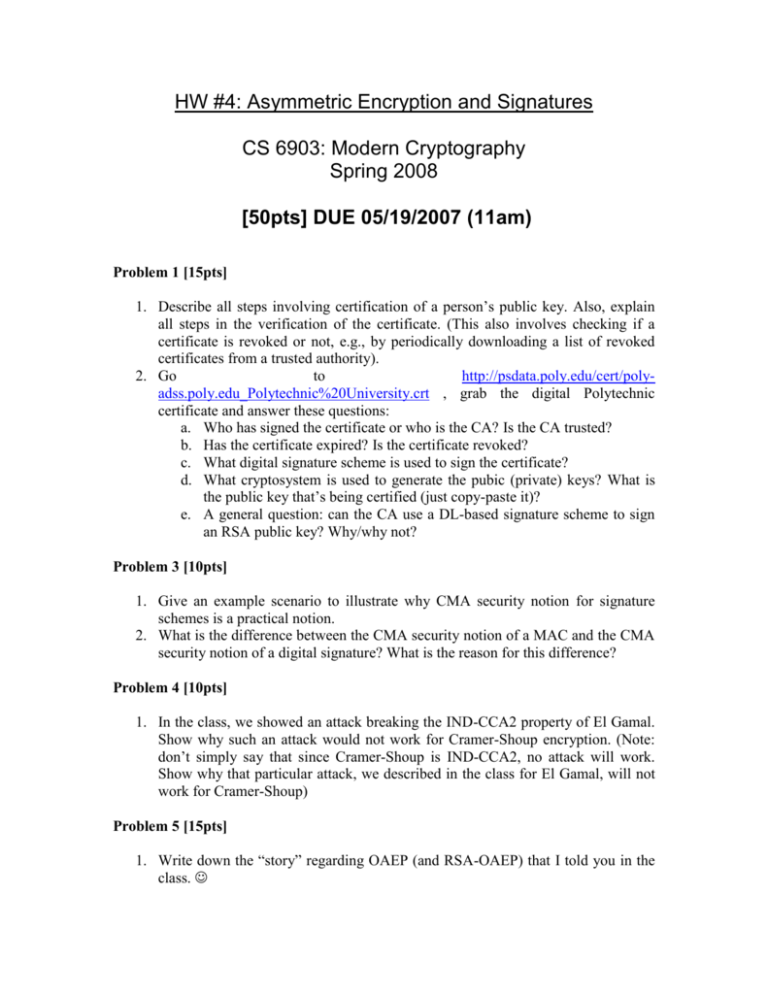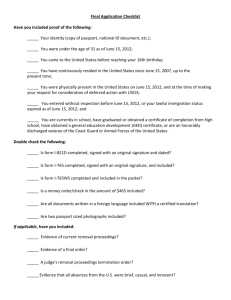HW #0: Computer Security Around You
advertisement

HW #4: Asymmetric Encryption and Signatures CS 6903: Modern Cryptography Spring 2008 [50pts] DUE 05/19/2007 (11am) Problem 1 [15pts] 1. Describe all steps involving certification of a person’s public key. Also, explain all steps in the verification of the certificate. (This also involves checking if a certificate is revoked or not, e.g., by periodically downloading a list of revoked certificates from a trusted authority). 2. Go to http://psdata.poly.edu/cert/polyadss.poly.edu_Polytechnic%20University.crt , grab the digital Polytechnic certificate and answer these questions: a. Who has signed the certificate or who is the CA? Is the CA trusted? b. Has the certificate expired? Is the certificate revoked? c. What digital signature scheme is used to sign the certificate? d. What cryptosystem is used to generate the pubic (private) keys? What is the public key that’s being certified (just copy-paste it)? e. A general question: can the CA use a DL-based signature scheme to sign an RSA public key? Why/why not? Problem 3 [10pts] 1. Give an example scenario to illustrate why CMA security notion for signature schemes is a practical notion. 2. What is the difference between the CMA security notion of a MAC and the CMA security notion of a digital signature? What is the reason for this difference? Problem 4 [10pts] 1. In the class, we showed an attack breaking the IND-CCA2 property of El Gamal. Show why such an attack would not work for Cramer-Shoup encryption. (Note: don’t simply say that since Cramer-Shoup is IND-CCA2, no attack will work. Show why that particular attack, we described in the class for El Gamal, will not work for Cramer-Shoup) Problem 5 [15pts] 1. Write down the “story” regarding OAEP (and RSA-OAEP) that I told you in the class. 2. Refer to the Section 6 (“Instantiation”) of the paper http://wwwcse.ucsd.edu/~mihir/papers/ro.pdf, and show how the functions G and H needed in the OAEP construction can be instantiated using, e.g., MD5 hash function. 3. Is “textbook-RSA” signature scheme CMA secure? Show why/why not.






